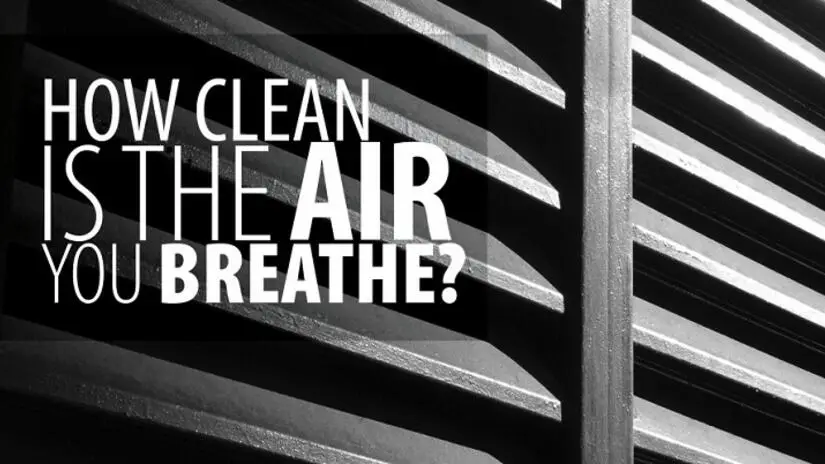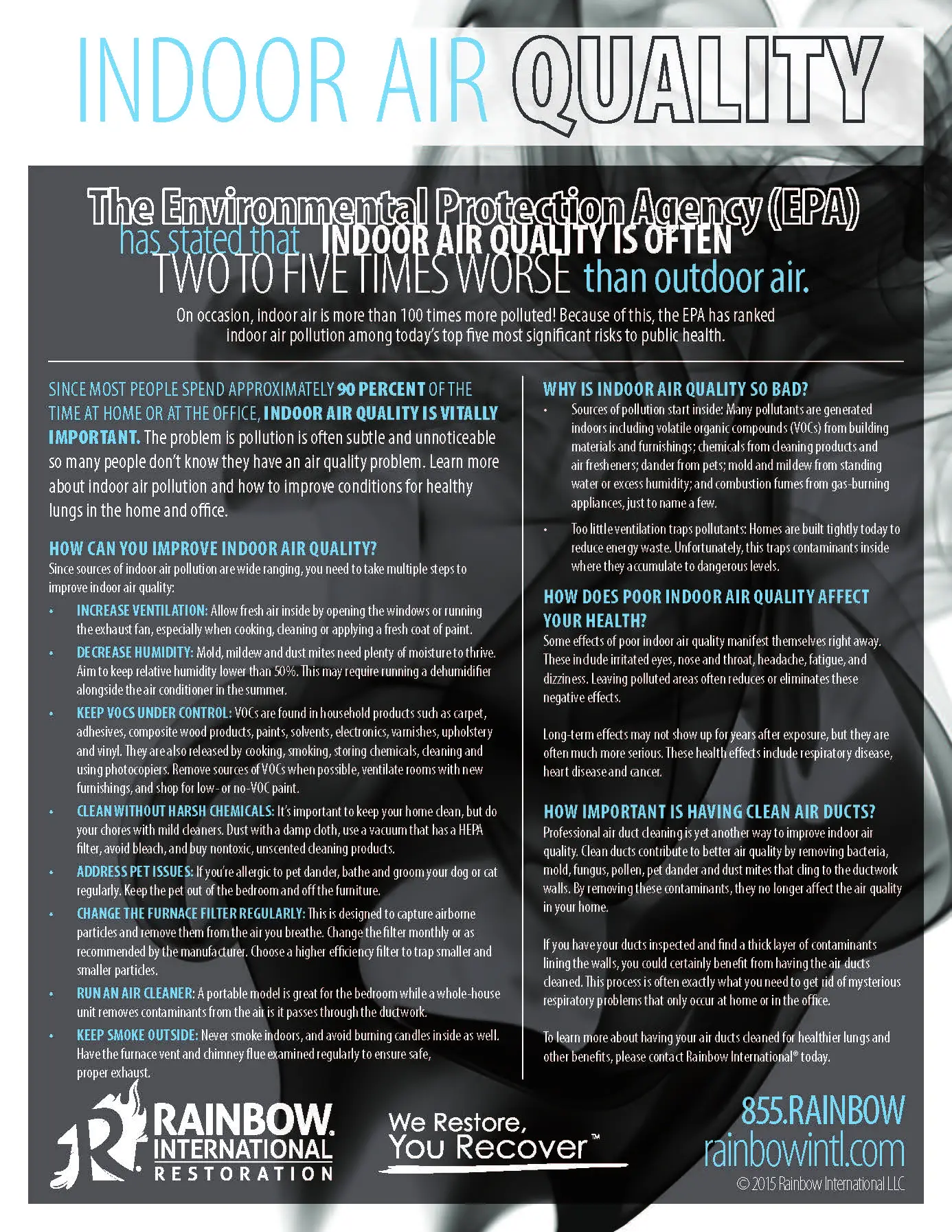
According to Rainbow Restoration, indoor air quality is crucial for health and comfort.
|
Air pollution is everywhere. Vehicles, industrial plants, large fires, and other factors produce fumes and particles that can contaminate the air you breathe. So staying inside can protect you, right? Unfortunately, that's not true! Surprisingly, indoor air quality can often be two to five times worse than outdoor air, according to the Environmental Protection Agency (EPA). And on occasion, indoor air contamination skyrockets to more than 100 times more than outdoor air quality! Because of this, the EPA has ranked indoor air pollution among today’s top five most significant risks to public health.
 What Makes Indoor Air Quality So Bad?
What Makes Indoor Air Quality So Bad?
- Volatile organic compounds (VOCs) from building materials and furnishings
- Chemicals from cleaning products and air fresheners
- Dander from pets
- Mold and mildew from standing water or excess humidity
- Combustion fumes from gas-burning appliances
- Too little ventilation traps pollutants
How Does Poor Indoor Air Quality Affect Your Health?
Short-term effects, including:
- Irritated eyes, nose and throat
- Headache
- Fatigue
- Dizziness
Long-term effects, including respiratory disease, heart disease and cancer
How Can You Improve Indoor Air Quality?
Since breathing is not an option and it’s something we must do to live, it’s vital for you to take steps to improve the air that enters your lungs. Consider some of these suggestions to help you:
- Increase ventilation: Open a window! Allowing fresh air inside or running an exhaust fan, especially when cooking, cleaning, or applying a fresh coat of paint, can help clean the air you breathe.
- Decrease humidity: Reduce moisture! Mold, mildew, and dust mites need plenty of moisture to thrive. Aim to keep relative humidity lower than 50 percent in your home by using a dehumidifier.
- Keep VOCs under control: Reduce the Volatile Organic Compounds (VOCs) in your air! VOCs are found in household products such as carpets, adhesives, composite wood products, paints, solvents, electronics, varnishes, upholstery, and vinyl. Cooking, smoking, storing chemicals, cleaning, and using photocopiers also release them. Always ventilate rooms with new furnishings and shop for low- or no-VOC paint.
- Clean without harsh chemicals: Keep your home clean with milder cleaning methods. You can do this by dusting with a damp cloth, using a vacuum that has a HEPA filter, avoiding bleach, and buying nontoxic, unscented cleaning products.
- Address pet issues: Reduce pet dander! Bathe and groom your dog or cat regularly and limit the areas they are allowed to roam. Keep the pet out of the bedroom and off the furniture.
- Change the furnace filter regularly: Use quality air filters designed to capture airborne particles and remove them from the air you breathe. Change the filter monthly or as recommended by the manufacturer.
- Keep smoke outside: Never smoke indoors, and avoid burning candles inside as well. Have the furnace vent and chimney flue examined regularly to ensure safe, proper exhaust.
- Run an air cleaner: Invest in cleaner air! Purchase a portable air cleaner to reduce the amount of contaminants from your home’s air as it passes through the ductwork. Or better yet, have your air ducts professionally cleaned to remove built-up contaminants in your ventilation system!
How Important is Having Clean Air Ducts?
Professional air duct cleaning is an effective way to improve indoor air quality. Clean ducts contribute to better air quality by removing bacteria, mold, fungus, pollen, pet dander, and dust mites that cling to the ductwork walls. By removing these contaminants, they no longer affect the air quality in your home.
If you have your ducts inspected and find a thick layer of contaminants lining the walls, you could certainly benefit from having the air ducts cleaned. This process is often exactly what you need to get rid of mysterious respiratory problems that only occur at home or in the office.
Learn more about professional residential air duct cleaning as well as commercial air duct cleaning and how it can help your home or business by requesting an appointment online or by calling Rainbow Restoration.
Related Posts:
What Should You Expect from Air Duct Cleaning?
How Often Should I Clean My Air Ducts?
Air Duct Cleaning Improves Efficiency
